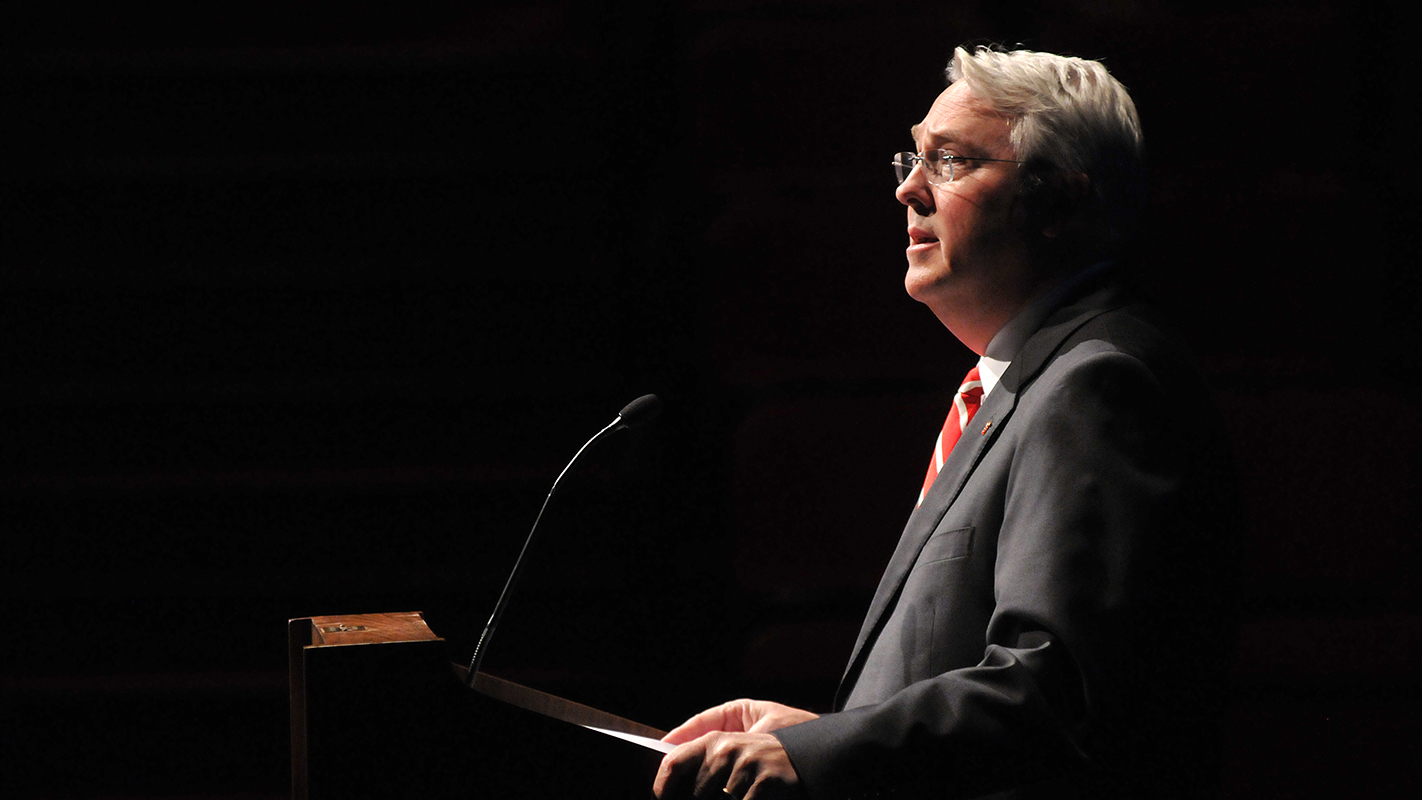WASHINGTON, D.C.—NC State Chancellor Randy Woodson has been named chair of The Challenge of Change: Engaging Public Universities to Feed the World, a commission convened by the Association of Public and Land-Grant Universities (APLU) to address growing domestic and global food security challenges and to ensure universal food security by 2050.
The commission will draw on the unique academic, research and leadership capabilities of public research universities to help solve those challenges by identifying research, education and engagement efforts to ensure the three pillars of food security—access, availability and utilization. It is expected to issue a report in early 2017 with final recommendations for both public research universities on how to align their agenda to meet this challenge and for the new presidential administration on how it can provide federal support of such critical research efforts.
Woodson, past chair of APLU’s board of directors and an accomplished educator in plant physiology, has long been a part of the organization’s leadership and is uniquely qualified to engage leading scholars in the agricultural, biological, physical and social sciences, as well as development experts, public university administrators and former senior government officials. The W.K. Kellogg Foundation provided financial support for the commission’s work.
“Public universities are uniquely positioned to bring together the brightest minds from across academia and industry to solve the world’s grandest challenges, and there are few if any issues that will be more challenging over the next several decades than worldwide food security,” Woodson says. “The world’s population is expected to pass 9 billion by 2050 and food productivity is already running behind the need.
“This important commission will strive to help build a sustainable food security model that can benefit communities across the globe for generations to come.”
The commission will offer a comprehensive agenda through the work of interdisciplinary working groups focusing on the entire food system from production to consumption with the goal of identifying the key breakthroughs required in both domestic and global production and non-production issues to achieve future food security around across the globe. These working groups cover:
- Sustainable production systems
- Plant and animal performance
- Soil health
- Food loss and waste
- Inclusive economic growth
- Human nutrition
- Food safety and sanitation
- Knowledge and education
The working groups will address these areas with consideration of cross-cutting issues, including environmental effects of agriculture, climate change, policy and governance and institutional and system changes needed to address the key challenges identified.
“Eliminating hunger is a global challenge that will require global solutions. With their vast and unique capabilities, our nation’s public research universities can and must play an outsized role in achieving that all-important goal,” says APLU President Peter McPherson, who served as Administrator of the United States Agency for International Development during the Reagan administration. “From their initial charter as agricultural colleges to their shepherding of the Green Revolution, land-grant and all public universities have long played a central role in improving the quantity, quality and availability of food in the United States and world.
“Now we must train the vast resources and knowledge housed at the nation’s public universities on tackling global food security by 2050. This commission will produce a blueprint for public universities’ role in addressing one of the truly great challenges of our time.”
- Categories:



